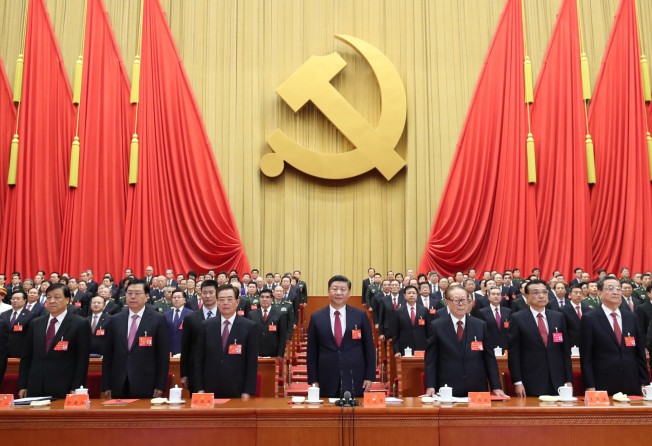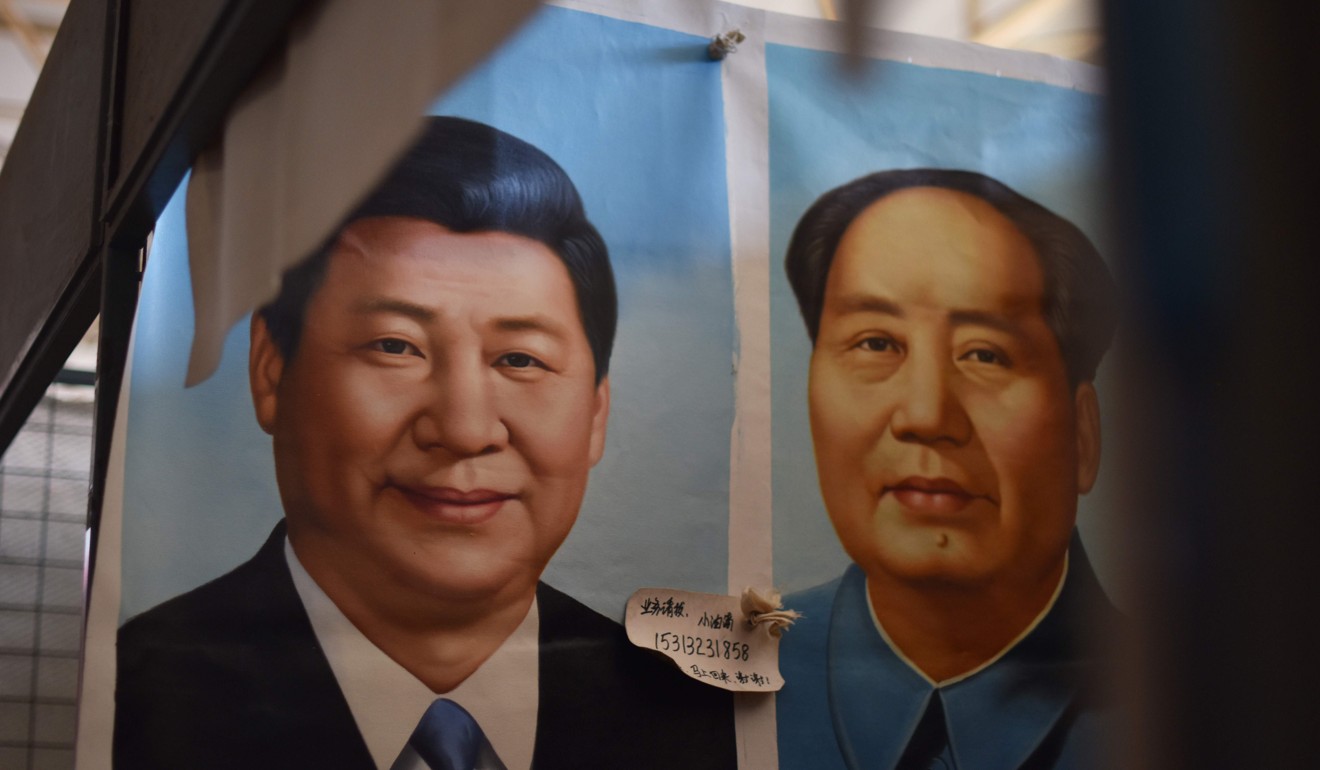Change to Chinese presidency term limits could signal overhaul of role
Under the Chinese political system, true power lies with the general secretary, but Xi Jinping could be aiming to shift the dynamic

The decision to remove the constitutional restriction on China’s presidential term limits suggests Chinese President Xi Jinping may want to turn what is essentially a ceremonial position into a role carrying much greater political heft, an observer familiar with party ideology says.
The party’s Central Committee on Sunday announced a plan to remove language from the charter saying the president and vice-president “shall serve no more than two consecutive terms”. The move is the strongest indication yet Xi plans to stay in power beyond the end of his second term as general secretary in 2022.
While most China experts have long expected he would find a way to remain in power, it is surprising the amendments have come so early in the second term.
Theoretically, Xi does not need to rely on the title. In Chinese politics, the role of president is largely ceremonial, with real power resting in the hands of the general secretary and the chairman of the Central Military Commission. Xi holds all three positions.
Deng Yuwen, former editor of the Study Times newspaper affiliated with the Central Party School, said the timing of the amendment suggested Xi planned to make the office more significant.
“In the next five years, the president may be given more substantial power, and we are likely to see that in future constitutional amendments,” Deng said. “The president is still largely a nominal title now, so raising the term limit is not too significant unless new power is attached to the title.”

Experts said the amendment could also make the vice-presidency more powerful.
The announcement could pave the way for the party to redefine both of those roles, giving Xi and Wang a more solid base to exercise power, although the released draft did not touch on that area.
Deng said the move sent an obvious message about Xi’s intention.
“This is a very clear sign that the president will remain in office beyond the existing term limit,” Deng said. “We don’t know if it could be life tenure at this stage, but two extra terms will be of no question.”
The role of president carries only nominal power, such as signing laws and suggesting a premier to the National People Congress. The president has no say over the appointment of other members of the State Council or the party’s all-powerful Politburo Standing Committee. Nor does he have legal power to command the army, which answers to the chairman of the Central Military Commission.
The country only reinstated the position of president in the early 1980s, and it was sometimes occupied by party elders who were not the paramount leader.
But the title has grown in significance in the decades since, with the seat being held by the general secretary, the most powerful position in the party.
In the past two decades, the supreme Politburo Standing Committee has seated a successor no later than the end of the incumbent president’s first term.
But the question of Xi’s successor was left open at the 19th party congress in October – the first time the political elite failed to anoint an heir apparent during a leader’s second term.
An editorial in the Global Times, affiliated with the state-run People’s Daily, said the constitutional amendment did not mean life tenure.
“A broad consensus has formed in the party, and China has successfully solved the problem of orderly power transition of state and party leaders,” said the article, published soon after Xinhua’s announcement.
Yet veteran China watchers were less certain about when Xi might step down.
“He will stay at his pleasure, for as long as he wants to and feels that he needs to do so,” said Steve Tsang, director of the SOAS China Institute at the University of London.
“There will be no limit to how long he can stay on, once this proposed change is incorporated into the constitution.”
Beijing-based political commentator Zhang Lifan agreed.
“Now there’s no limit to his terms,” he said, adding Xi could remain in a decisive role even until the 100th anniversary of the founding of the nation in 2049. He would be 96 by then.